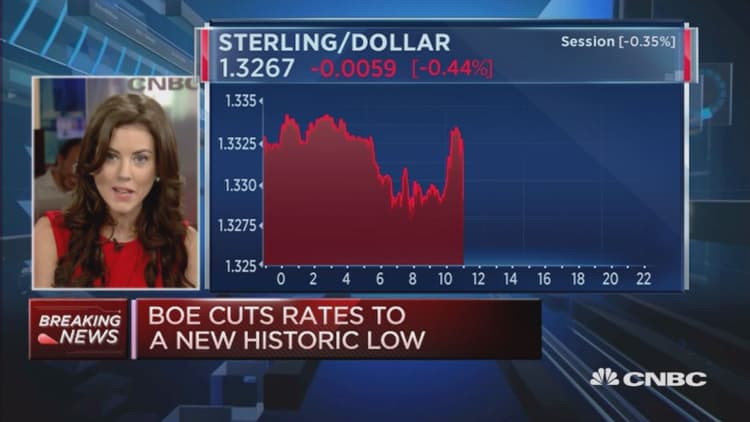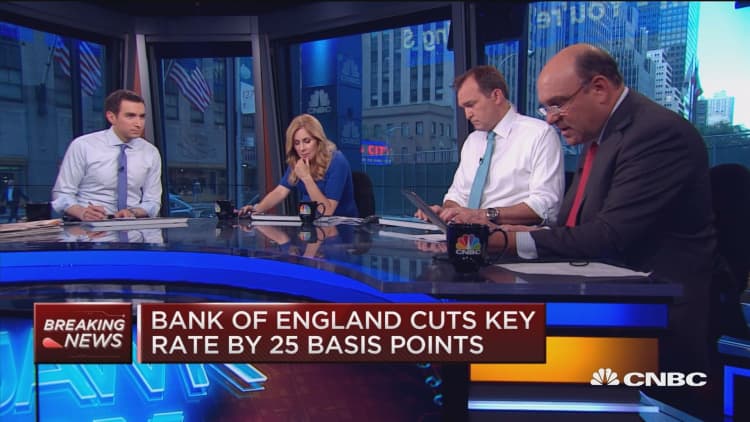The U.K. banking sector could be the one big casualty of the Bank of England's decision to cut interest rates by 25 basis points and the announcement of further easing.
The U.K. banking sector, along with the larger European banking sector, has been under pressure in this already low interest rate environment.
Add to that the massive blow banks like Royal Bank of Scotland, Barclays and Lloyds suffered after the U.K. voted to leave the European Union on June 23. Major European banks like Deutsche Bank and Credit Suisse saw their shares in free-fall after the referendum's results were announced. In the U.K., RBS was the worst-hit, with its shares plunging by more than 30 percent since June 24.



These prices have seen a rebound since the Brexit vote but still continue to be in negative territory. Following on from the vote was weak second-quarter earnings report and stress test results from the European Banking Authority (EBA) that pointed to risks in the banking sector. But with an additional rate cut and more easing from the Bank of England, the sector has come under further pressure.
"Lower rates would be bad for bank margins, but of course so would a sharp economic downturn," Philip Shaw, chief economist at Investec, told CNBC via email.
"It does seem as though the Bank of England is unwilling to reduce the policy rate down to zero, therefore the process may not have too much further left to run."
Equity analysts across Europe are not a big fan of the banking sector at the moment. The Euro Stoxx banking index has lost nearly 32 percent since the start of the year. Earlier this week Credit Suisse and Deutsche Bank saw their shares fall further thanks to a combination of poor earnings and exclusion from the Euro Stoxx 50 index.
"A sustainable turnaround for European banks is not yet in sight," Helmut Hipper, portfolio manager at Union Investment told CNBC via email.
"The risk of an imminent capital raise has diminished after the stress test but the bigger problem is the weak profitability because of the extremely low interest rates. The shrinking returns in the credit and bond portfolios lead to a lasting pressure on earnings. The earnings power of several banks in the sector remains weak."

But some analysts think further rate cuts will support U.K. banks. Speaking to CNBC before the rate decision was announced, James Butterfill, head of research at ETF Securities, said cutting interest rates further will probably help the sector.
"Banks tend not to immediately reflect rate cuts in their lending products whilst they are in savings products, supporting margins," he said.
The Bank of England cut its interest rates for the first time in seven years to 0.25 percent from 0.5 percent and announced a £60 billion ($78.9 billion) hike in the bank's government bond-buying program, known as quantitative easing, to £435 billion.
BoE Governor Mark Carney in the post-decision press conference said he is not a fan of negative interest rates and there are other options to provide stimulus if needed. He also added that the monetary policy committee is very clear that it sees effective lower bound for interest rates as a positive number.
"The banks have no excuse with today's announcement not to pass on this cut in bank rate," Carney said.


